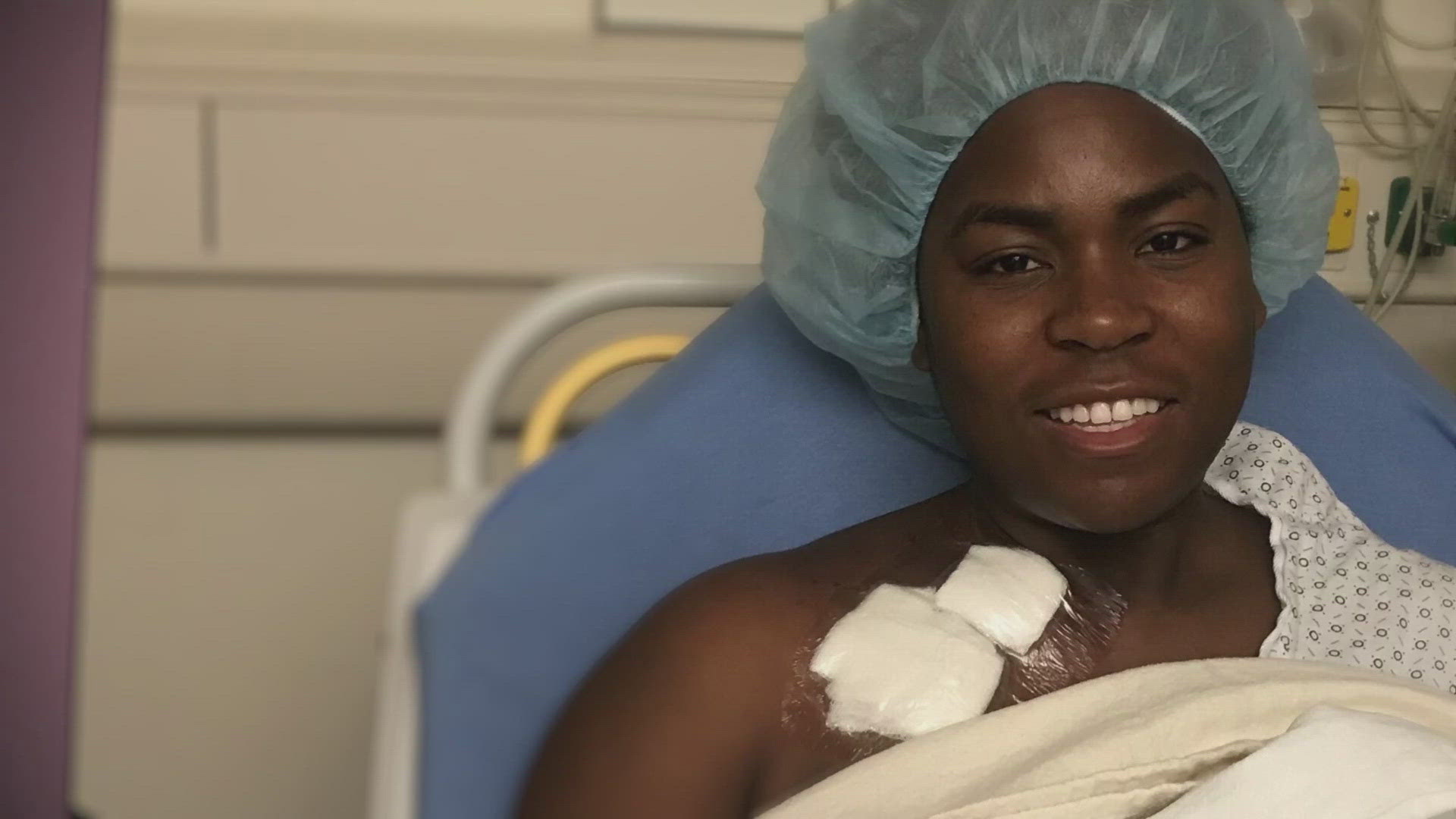JACKSONVILLE, Fla. — There are programs currently in place in Jacksonville to help the city's uninsured and underinsured. But health care barriers come in different forms. People in a lower socioeconomic bracket say they are treated differently in many settings, including while seeking care. Health equity experts attest that it's a disturbing fact.
Raised in West Jacksonville, Vonceil Bradford is the product of Moncrief Elementary, Paxon Middle, Raines High School and Florida A & M University.
"I'm the first doctor in my family, the first one to go to a university," Bradford said. "I wanted to make a difference. I wanted to prove statistics wrong."
She had her first child at the age of 16, and her second while in her senior year at Raines.
"I don't regret my children," Bradford said. "They gave me a level of motivation when I was diagnosed with breast cancer, I was on a mission."
She's faced adversity before, but a lump discovered while in pharmacy school at FAMU at the age of 29 led to the biggest fight of her life.
"I discovered a lump the size of maybe a pecan," Bradford said. "I remember coming home about a month later and I brought it to my doctor's attention."
Bradford says she was told to monitor that lump, and within months it grew to the size of a golf ball.
"I had this constant pain on the right side, and I remember having discharge coming from my breast," Bradford said. "I went to a hospital in Tallahassee, FL."
She recalls being told that it may be a cyst. No scans were done and once again, Vonceil says she was advised to monitor the lump.
"For me, I had that level of trust that this is the doctor, she must be 100 percent aware of the information she's providing, she's seen this multiple times," Bradford said.
Months past and Bradford says the complications got more severe.
"I'm constantly in the ER, every week complaining about the same issues, the pain, the discharge," Bradford said.
Feeling dismissed, she called her doctor in Jacksonville and insisted that scans needed to be done. On the other end of a nearly three-hour drive home, yet another hurdle stood in Bradford's way.
"I was informed that they were not going to do the mammogram because of my age," Bradford said. "The doctor said she did not want to introduce me to unnecessary radiation."
Vonceil recalls being unable to hold back her tears. She'd lose her composure, to save her life.
"I was at the front desk, and I said it would take for me to die before someone listens to what I'm saying," Bradford said. "This has been going on almost a year. I discovered this maybe in the Spring, maybe March of 2019. Here we are in November. And I'm like I know something is going on with my body!"
The hospital agreed to do an ultrasound. There are key moments that vividly replay in Bradford's mind, including the technician’s reaction, while scanning her breast.
"I remember her rushing to try to hang the monitor up and get out the room," Bradford said. "And in that moment, I knew it wasn't a cyst. I could hear the conversations outside of the room. I remember walking out the door and the hallway became silent. And I just remember saying, ya'll were going to let me leave! No one cared!"
She finally got a mammogram that day.
"The only thing I could think about is I discovered this when I was 29 and I am (now) 30," Bradford said.
"Why do you think it took you a year to finally get diagnosed?," Keitha Nelson asked Bradford.
"I think my age played a factor," Bradford responded. "When I was diagnosed with breast cancer I was in that social economic class of the voices that are shut off, dismissed. I was that Medicaid patient."
"There are costs that are involved in evaluating someone for cancer," GuideWell's Chief Health Equity Officer, Dr. Kelli Tice said. "And so often those decisions are made based on what we think the risk is, so we don't order the test that we think might be more expensive."
After 25 years in the medical field, Tice says she's witnessed one too many disparities within the health care system.
"I think physicians tend to air on the side of reassuring you," Tice said. "And this is a question we should ask for ourselves, 'how can you assure me that what I'm experiencing isn't something that could be catastrophic?' That's the answer. Don't reassure me that it's nothing. Reassure me that it's not something I should be worried about."
When finally diagnosed, cancer was found in her right and left breasts. Bradford would end up removing them both. Unimaginable at just 30 years old, but she's grateful to still be alive.
She had support throughout her battle, friends who were also involved in the fight against breast cancer.
"We called (it) 'the sisters that will survive,' I have it in my phone," Bradford said. "It was me, her (Jessica Florence), and a young lady named Stephanie."
Jessica Florence died in 2023.
Keitha Nelson asked, "Is Stephanie still here?"
Bradford responded, "Stephanie is not here."
"You're the only one?," Nelson asked.
"I'm the only one," Bradford said, before beginning to cry.
To learn what you can do right now to change health outcomes for Black women for generations to come visit voices.cancer.org. There you'll be able to find out if you are eligible to sign up for the VOICES of Black women research study.
Black women less likely to be diagnosed with breast cancer but more likely to die from it
Part V of the Untold Truth: Vonceil Bradford says it took one year of seeking care before she was diagnosed with cancer in both breasts.

